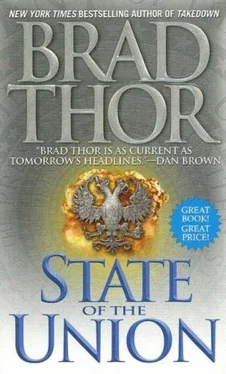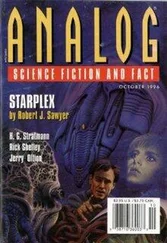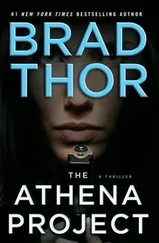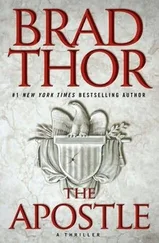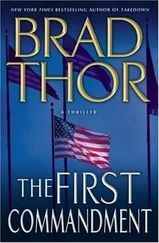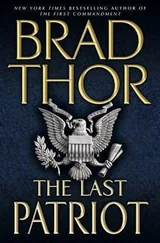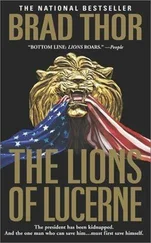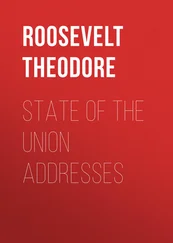The clock ran well past the half-hour mark with ideas being floated on everything from introducing a forward-engineered strain of the Ebola virus into Russia and then quarantining the entire country with an unprecedented land and naval blockade, to launching an all-out bombing attack with airplanes and nuclear weapons from the World War II era that many believed would be unaffected by the Russians’ new air defense system which seemed to affect modern electronic guidance systems.
After Rutledge had had his fill of talk about killer satellites, commandos suspended from jet-propelled parachutes, and even plague-infested rats with plague-dispersing backpacks; he retired to the residence for a quiet meal with his daughter, Amanda, whom he had pulled out of school and was keeping under close guard at the White House around the clock-not an easy thing to do with a young woman who had just passed her seventeenth birthday.
“Dad,” she said, after the steward set down their salads and then quietly left the room, “has America been fucked with a capital F?”
While the president had been known to privately extend a certain amount of latitude to his staff in their vocabular selections, that policy most certainly did not extend to his daughter. “First of all,” he began, “I don’t care how close USC and college life may appear to you, I don’t ever want to hear that language again. Am I clear?”
The rebuke was extremely embarrassing for Amanda Rutledge. It had been one of her first forays into an adult conversation with her father and it had failed miserably. Having overheard two of the agents on her Secret Service detail speaking, she had thought she might engage the president on a gritty, adult level, but the attempt had crashed and burned. Instead of relating to her as a knowledgeable young adult, her father had immediately shut her down as a child whose opinion didn’t matter. Nevertheless, Amanda Rutledge wasn’t one to be deterred. “I may not have used the best language, Dad, but I’m only repeating what I already heard. Is America in trouble?”
“Of course not,” said the president, making sure he smiled as he reached for the salad dressing.
“Then why’d you pull me out of school? I’m not stupid, you know.”
Rutledge dribbled the salad dressing onto his plate for as long as he could and wished for the millionth time that breast cancer had never taken his wife. She was so much better at handling these things than he was. Tackling the truth head-on was his forte, but breaking it down in such a way so as to not completely shatter the world of a seventeen-year-old, was almost totally beyond his realm of expertise.
No matter how much he wished things were different, though, his wife wasn’t with them anymore. He had no choice but to explain things to his daughter. “Amanda, I’m not going to lie to you. America is facing a potentially serious threat right now, but no matter what happens you’re going to be okay. I promise you.”
“What about you?” she asked.
“I’ll be okay too. We’ll both be together. So don’t worry. Okay?”
“Dad?” Amanda continued as she stabbed her fork into her salad. “What about the rest of the people in America? Are they going to be okay too?”
“I’m doing everything I can to make sure that they are,” responded the president.
“I know you are,” she said, before turning her attention back to her salad.
After several minutes of strained silence between them, Amanda asked, “Dad, are we going to die?”
ST. PETERSBURG, RUSSIA
STATE OF THE UNION ADDRESS-4 DAYS
The first thing Harvath noticed upon exiting St. Petersburg’s dingy train station, known as theFinlandsky Vokzal, was the bronze statue of Vladimir Ilyich Lenin standing atop an armored car. Harvath followed the statue’s finger to where it ironically pointed across the frozen Neva River to a large orange building with a tall antenna-theBolshoi Dom, literallyThe Big House, home of the Interior Ministry and local headquarters of the FSB. For a country that had supposedly sworn off Communism, it had always seemed strange to Harvath how many prominent statues and monuments from that era they still displayed. For their part, the Russians claimed that having been defined by Communism for so long, it was impossible to erase every vestige of it. After all, it was Communism that had brought them prominence, notorious though it was, in the modern world and like it or not, the experience of living under Communism had become part of the Russian soul.
Well, Harvath didn’t like it. What had seemed up to now like an idiosyncratic clinging to a failed political experiment had taken on a new and graver significance for him over the past several days. The idea that the Soviets could have faked capitulation, only to now hold his own country hostage from within, made him sick to his stomach.
Passing the statue, Harvath noticed a small stray dog pick up its leg and urinate against old Vlad. “Good boy,” he whispered, as he threw the dog the last cookie from the pack he had purchased from one of the countless vendors on the rickety train known by locals as theelektrichka. It felt good to find a kindred spirit so soon upon his arrival in Russia. He only hoped that Viktor Ivanov’s daughter would turn out to be one as well. The Defense Intelligence Agency had an asset who had worked with her before, and it was through that asset that she had agreed to meet with him. Harvath was counting on her willingness to help him with whatever she knew. At this point she was his only lead, and time was quickly running out. The State of the Union address was only four days away.
Though he could have taken the St. Petersburg Metro, Harvath wanted to get the lay of the land before his meeting. Following the cheap tourist map he had picked up in the station, he headed south and crossed the Neva River via the Liteynyi Bridge. The air was cold and damp, much damper than it had been in Berlin. Heavy, snow-laden gray clouds crowded the sky, while a thin layer of silvery flakes covered the streets and sidewalks.
As he walked, Harvath reflected on everything that had happened over the last four days, culminating in his misadventures on the Baltic with the two Russian Federal Border Guard Service patrol boats. After a long time in the water, he had finally rendezvoused with the Navy SEAL Team assigned to bringing him the rest of the way into Russia. They were operating a commandeered smuggler’s boat, which thankfully had a fully equipped galley. After changing out of his dry suit, Harvath downed about a gallon of water, then ate a meal of fried eggs accompanied by a cup of black coffee and a hunk of rye bread.
They dropped him off just up the coast from a town called Zelenogorsk, where he caught theelektrichka to St. Petersburg. He wore a fisherman’s turtleneck sweater, jeans, boots, and his black leather jacket. He also wore a super lightweight KIVA technical backpack, which contained a hydration system, a change of clothes, and some other goodies the SEALs had provided him with.
As he cut through the Mikhailovsky Gardens, Harvath saw his third group of Russian schoolchildren and decided that Fridays in St. Petersburg must be field-trip day. Beyond the gardens, stood his destination-the majestic Hermitage Museum.
The museum was one of largest in the world, second only to the Louvre in Paris, and it occupied six buildings along the Neva. The most impressive of those buildings was known as the Winter Palace, former home of the Russian czars. Entering the green and white Winter Palace along theDvortsovaya Embankment, Harvath bought a ticket for 300 rubles and made his way through the Russian Baroque Rastrelli Gallery, with its massive columns and intricately vaulted ceiling, until he came to the Hermitage Café.
Читать дальше
